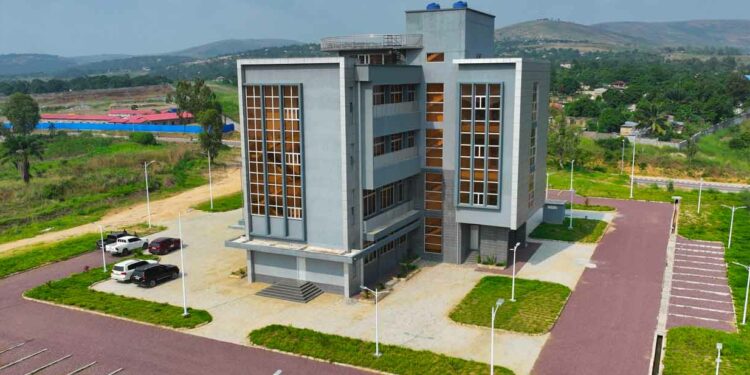
Share on FacebookShare on TwitterShare via Whatsapp
When the COVID-19 pandemic struck the Democratic Republic of Congo (DRC) in March 2020,the country faced the challenge of protecting public health without halting an already fragile economy. Amid uncertainty,a project arose that turned crisis into opportunity: the Maluku Pilot Special Economic Zone (SEZ),on the outskirts of Kinshasa.
Designed as a driver of industrial diversification and recovery,the Maluku SEZ has,within a few years,transformed a peri-urban area of the capital into an attractive hub for investment and innovation. Equipped with paved internal roads,a modern drinking water supply network,drainage and sanitation systems,a reliable electricity supply supported by a 75 MVA transformer,and a modern administrative building with a one-stop shop for businesses,the project represents a model of planned and sustainable industrialization.
Afriex and Visa Direct accelerate $669B in Remittances with Real-Time Payments
Today,Maluku hosts companies that reflect the country’s growing potential to compete regionally. Among them are Saphir Ceramics,specializing in tile and earthenware production with a daily capacity of 50,000 m³,and Varun Beverages,part of the Pepsi group,which has invested $129 million in its soda production plant. The company’s operations have created more than 5,000 direct and indirect jobs,opening new opportunities for Congo’s technical and professional youth.
For Jonathan Mutambay Mudingay,a production engineer at Varun Beverages,the project has been a turning point in his career: “I had the chance to train and work here. It’s a real opportunity for young Congolese people. I’d tell every young engineer to come — if you put your intelligence to work,you’ll find your place.”
Jonathan’s experience reflects the spirit that drives Maluku: a space where youth,innovation,and national industry converge to foster inclusive growth. According to Auguy Bolanda,General Manager of the Maluku Pilot SEZ,the project is more than just an industrial site: “Maluku will serve as a model for future economic zones across the country. Thanks to the one-stop shop,companies can now handle their administrative and tax processes on site. The SEZ enhances competitiveness,creates jobs,and accelerates local industrialization.”
The initiative is supported by the Government of the Democratic Republic of Congo,which aims to transform the nation’s economic structure and strengthen domestic production. Backed financially by the African Development Bank,through the COVID-19 Crisis Response Support Programme and the Fragile States Financing Facility (CFEF),the project has delivered modern infrastructure capable of attracting both national and international investment.
The Maluku Special Economic Zone stands today as a vivid example of how a country can turn adversity into opportunity,laying the foundations for a new industrial era. Within its facilities,more than factories are being built — the economic future of a generation is taking shape,proving that Congolese resilience thrives through innovation,hard work,and sustainable development.
United News - unews.co.za